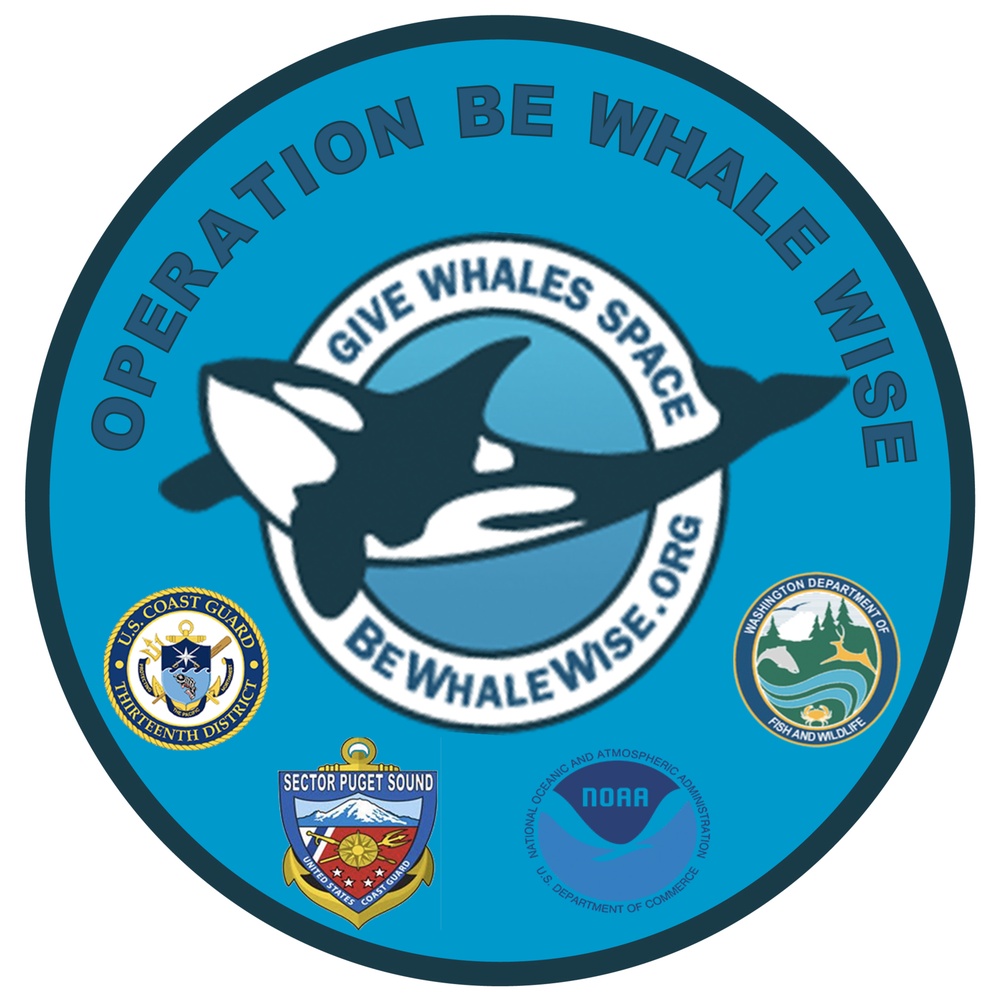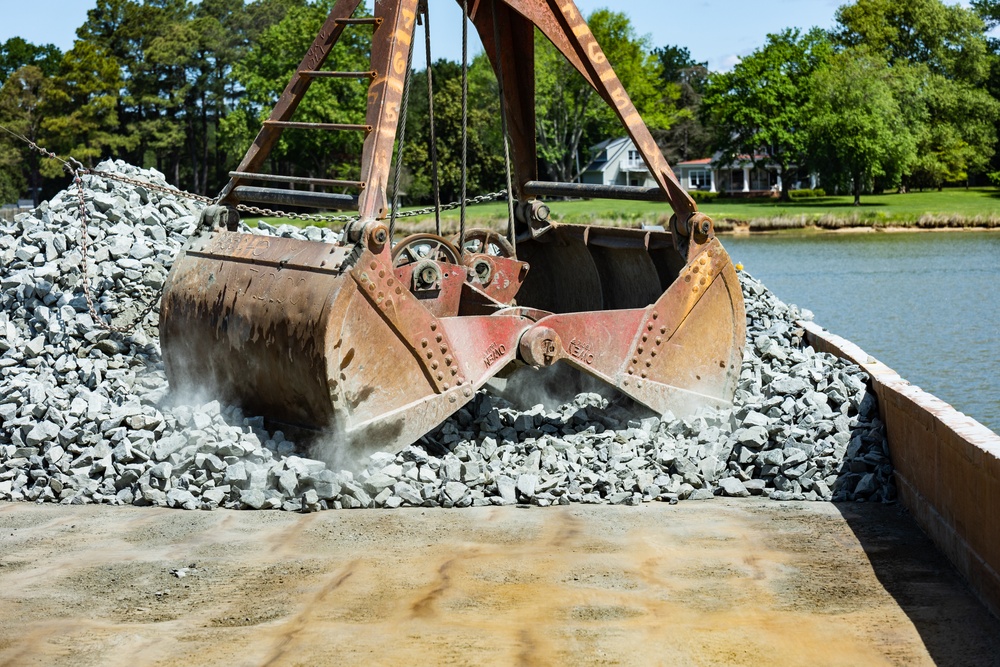DVIDS – News – A whale of awe: Protecting the Soul of the Salish Sea
By Petty Officer 3rd Class Michael Clark
A 30-foot, 14,000-pound apex predator doesn’t roar. It sprays a rainbow-ridden waterspout. Try to look away as an orca’s 6-foot, black dorsal fin bursts through the surface and entraps your gaze as you peer over the emerald waters of the Salish Sea. The orca audibly takes in another breath, filling its lungs once more before the black fin slips down to the depths and away from sight. Soon, more rise to the surface in a display of geysers, and you realize you would not have known their number had they not revealed themselves. You might not have known they were there at all.
To the First Nations and indigenous peoples of the Pacific Northwest, the orca is a totem of cultural significance. From love and fortune to strength and guardianship, these magnificent marine mammals have embodied the deeper meanings of life for millennia.
Known also as killer whales in recognition of their predatory cunning and intelligence, most orca pods primarily feed on other marine mammals such as seals, sea lions, and even other whales. One particular pod of orcas, though, has adapted to hunt fish – more specifically the Chinook salmon native to the waters of the Salish Sea region. This unique prowess has come to define them. Their predation along with sustained residence in the interior waters of Washington and British Columbia, rarely venturing beyond the western shores of Vancouver Island, has led to these orcas becoming known as, Southern Resident Killer Whales.
Despite sometimes symbolizing longevity and familial fortitude, these beautiful creatures are dwindling in number. Although known to represent resilience and good fortune, it seems they now need our stewardship to survive. In 2003, the Southern Resident Killer Whales were federally designated as an endangered species. The latest reports, made in February 2021, count as few as 75 remaining.
As the nation’s primary federal at-sea enforcement agency, the United States Coast Guard serves with a statutory mission of protecting living marine resources. This is meant to, “safeguard U.S. living marine resources and their environment, to include protected species, protected areas, and critical habitats, from unlawful acts and environmental degradation.”
Although the mission of protecting at-risk and endangered species is a national, even global endeavor, the frontline effort to protect these orcas falls to the crew of Coast Guard Station Bellingham and its partners.
“We are proud to protect these animals which are so special and unique to the Salish Sea,” said Petty Officer 2nd Class Maxwell Keas, a boatswain’s mate and boarding officer at Station Bellingham. “It is our job to enforce the safety zones that allow these orcas to transit safely and remain happy and healthy.”
As a boarding officer, Keas and others among the crew directly engage with the public to ensure mariners steer clear of the Southern Resident Killer Whales. Beyond the work to enforce safety zones, it is a constant effort to inform and educate the public about these endangered animals and perpetuate a culture of respect and responsible stewardship on the water.
This effort is continuous, but as increasing numbers of boaters saturate the Salish Sea and surrounding areas, Operation Be Whale Wise directs an even greater focus by the crew and its partners to engage in enforcement and public education. Through this program and by working with local, state and federal agencies, as well as Canadian counterparts to the north, the Coast Guard strives to optimize efforts that serve the Southern Resident Killer Whales during seasonal times of heightened marine traffic and human presence in the orcas’ environment. Specifically, ensuring law enforcement entities are on scene where and whenever possible to provide space and separation for the orcas’ safety, including provide information to the public.
Regulations in place require vessels to remain at least 300 yards from the flanks of the orcas, and 400 yards from behind or ahead of them. It is also required that any vessel known to be within one half-mile of the orcas to reduce speed to a maximum of 7 knots.
As the Coast Guard works to protect the Southern Resident Killer Whales and the marine environment at large, further initiatives and programs are taking place. The Quiet Sound initiative is being incorporated as a joint effort by a multitude of agencies and organizations, as well as the greater community, to reduce disruptive noise on and around the Salish Sea region. As orcas communicate acoustically and hunt by echolocation, efforts to reduce such disruption helps to ensure their survival.
“Quiet Sound is a voluntary and collaborative effort that endeavors to reduce noise impacts to the Southern Resident Killer Whales from vessels,” said Cmdr. Nathan Menefee, chief of prevention, Coast Guard Sector Puget Sound. “The Coast Guard shares the common goal of protecting these orcas while also ensuring safe navigation for vessels. We view these two goals as mutually beneficial.”
“The Quiet Sound program’s collaborative approach aims to adopt best practices from the Vancouver Fraser Port Authority’s Enhancing Cetacean Habitat and Observation (ECHO) program, which has successfully implemented several voluntary and non-regulatory measures to reduce the impacts of vessel traffic on the Southern Resident Killer Whale population,” said Menefee. “A non-regulatory approach provides a unique ability to allow flexibility and adaptation as we learn more about the effects of ship traffic and determine which measures yield the greatest benefits for these animals.”
The Coast Guard and many of its partners rely largely on law enforcement and jurisdictional capabilities to protect these endangered orcas; however, ideally, the goal is to incorporate the holistic efforts of the community to promote a culture of awareness and stewardship. Efforts should not only be compelled through law enforcement, but led by an organic awareness and desire to help. To this point, the National Oceanic and Atmospheric Administration serves to provide a greater understanding of the environment and enable public knowledge.
“The Coast Guard is an essential partner in our cooperative efforts to protect and recover the endangered Southern Resident Killer Whales,” said Lynne Barre, Southern Resident Killer Whale recovery coordinator for NOAA. “It is important to educate the public and ensure that the whales have the space they need to hunt the salmon they rely on.”
As the Coast Guard, partners and local maritime communities endeavor to protect the Southern Resident Killer Whales, the survival of these endangered animals relies heavily on public awareness and a willingness to contribute.
As the summer months bring sunshine and an age-old call to venture out onto the Salish Sea, please remember that we all have an impact on the pristine waters of the Pacific Northwest and its bounty of marine species.
Promote awareness in your community and help to ensure the survival of these orcas so that they may prosper as emblems of natural beauty. Our ancestors, and we, have been fortunate to witness them. We can continue to work hard to ensure this is the case for future generations to come.
Educate yourself and others by visiting BeWhaleWise.org, and report whale sightings using the WhaleReport App at https://wildwhales.org/2021/03/31/the-whalereport-web-app-introducing-a-new-way-to-report-whale-sightings/
| Date Taken: | 06.23.2021 |
| Date Posted: | 06.23.2021 19:28 |
| Story ID: | 399585 |
| Location: | SEATTLE, WA, US |
| Web Views: | 242 |
| Downloads: | 2 |


 Private Internet Access gives you unparalleled access to thousands
of next-gen servers in over 83 countries and each US state. Your
VPN experience will always be fast, smooth, and reliable.
Private Internet Access gives you unparalleled access to thousands
of next-gen servers in over 83 countries and each US state. Your
VPN experience will always be fast, smooth, and reliable.

